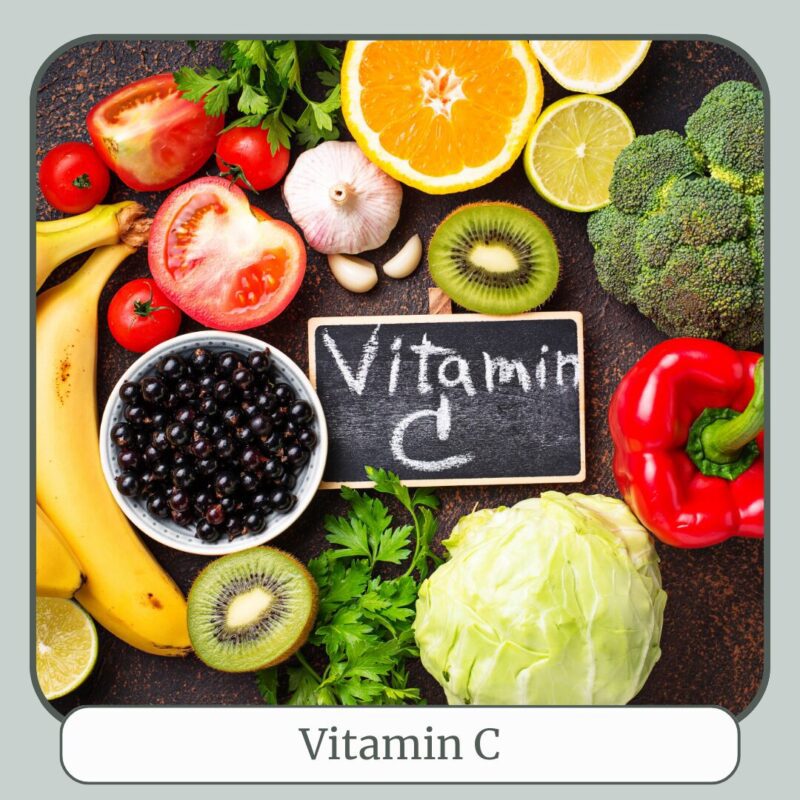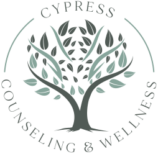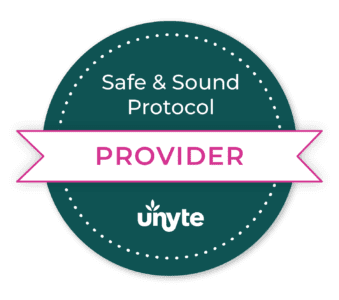When it comes to supporting mental health, Vitamin C often gets overlooked in favor of trendier nutrients. But this powerful antioxidant deserves its chance to shine. Not just for staving off colds, Vitamin C plays a crucial role in brain health, emotional regulation, and stress reduction. It supports the production of neurotransmitters that influence mood, protects the brain from oxidative stress, and helps regulate the body's stress response. Think of it as a multitasking nutrient—one that not only keeps your immune system strong but also keeps your mind feeling balanced and resilient. Whether you're looking to lift your energy, protect your brain from everyday wear and tear, or just feel a little more grounded, Vitamin C has got your back.
Let’s explore how Vitamin C works, why it matters for mental wellness, and how you can easily incorporate it into your daily diet.
Table of Contents
The Essentials: Mental Health Benefits of Vitamin C
- Supports Neurotransmitter Production: Vitamin C is crucial for the production of neurotransmitters like dopamine and norepinephrine, which are responsible for regulating mood and motivation. Think of these neurotransmitters as the messengers that keep your brain's "good vibes" flowing. When your body has sufficient Vitamin C, these messengers can do their job more effectively, contributing to improved emotional well-being.
- Fights Oxidative Stress: The antioxidant properties of Vitamin C help combat oxidative stress, which has been linked to anxiety and depression. It’s like giving your brain a protective shield against daily stressors, helping to maintain a stable mood.
- Protects Brain Cells from Damage: Vitamin C plays a vital role in protecting the brain from the damaging effects of free radicals. The brain is particularly vulnerable to oxidative stress due to its high metabolic activity, and without adequate antioxidant protection, this stress can lead to cellular damage and inflammation. By neutralizing free radicals, Vitamin C helps maintain the integrity of brain cells, potentially reducing the risk of cognitive decline and mood disorders.
- Boosts Energy Levels: Vitamin C is involved in the synthesis of L-carnitine, a compound that plays a key role in energy production. This is particularly important for mental health, as fatigue can contribute to feelings of low mood and lack of motivation. By supporting energy metabolism, Vitamin C helps ensure that both the brain and body have the energy needed to function optimally. After all, it’s hard to feel good when you’re running on empty.
- Regulates the Stress Response: Another important aspect of Vitamin C is its impact on the hypothalamic-pituitary-adrenal (HPA) axis, which regulates the body's response to stress. A well-functioning HPA axis is essential for maintaining balance in the body's stress response. Vitamin C helps modulate this axis, ensuring that the body can effectively cope with stress without becoming overwhelmed. This regulation is crucial for preventing chronic stress, which can contribute to anxiety and depression over time.
- Reduces Cortisol Levels: Research shows that Vitamin C can help lower cortisol, the stress hormone. By reducing cortisol levels, Vitamin C helps keep the physical effects of stress – like inflammation and fatigue – at bay. For those struggling with chronic stress or anxiety, getting enough Vitamin C could be a simple yet impactful way to support mental resilience.
Improves Cognitive Performance: Studies suggest that adequate Vitamin C intake may help improve cognitive function, particularly in areas such as memory and attention. By supporting brain health and protecting against oxidative damage, Vitamin C can enhance cognitive performance, making it easier to stay focused and mentally sharp.
Vitamin C Benefits
Research shows that people with higher levels of Vitamin C often experience less anxiety and fatigue, making it a key nutrient to consider for anyone looking to support their mental health naturally. In one study, participants who received Vitamin C supplements reported a notable reduction in their stress levels. When we’re under pressure, our bodies use up more Vitamin C, making it essential to replenish this nutrient during challenging times.
Signs You Might Have Low Vitamin C
- Fatigue or low energy levels
- Easy bruising
- Dry, rough, or bumpy skin
- Slow wound healing
- Bleeding gums or frequent nosebleeds
How to Get Enough Vitamin C
The good news is that Vitamin C is easy to find in a variety of foods, many of which are delicious and versatile. Citrus fruits like oranges and grapefruits are well-known sources, but there’s more to explore beyond the citrus aisle. Bell peppers, strawberries, broccoli, and even kiwi are packed with this important nutrient. For a mental health boost, try incorporating a range of Vitamin C-rich foods throughout your day – perhaps a strawberry smoothie in the morning or roasted bell peppers at dinner.
Top 10 Food Sources of Vitamin C
- Red bell peppers - 95 mg per 1/2 cup (raw)
- Oranges - 70 mg per medium fruit
- Kiwifruit - 64 mg per medium fruit
- Broccoli - 51 mg per 1/2 cup (cooked)
- Strawberries - 49 mg per 1/2 cup (fresh, sliced)
- Brussels sprouts - 48 mg per 1/2 cup (cooked)
- Grapefruit - 39 mg per 1/2 medium fruit
- Tomato juice - 33 mg per 3/4 cup
- Cantaloupe - 29 mg per 1/2 cup
- Cauliflower - 26 mg per 1/2 cup (raw)
Vitamin C Supplements: What You Need to Know
If you’re considering a Vitamin C supplement, it’s always a good idea to discuss it with a healthcare provider. Supplements can be an accessible way to boost your intake, especially if your diet lacks Vitamin C-rich foods. While supplements can be beneficial, food sources are typically the best way to absorb nutrients effectively, with added benefits like fiber and other essential vitamins.
Vitamin C supplements can be particularly helpful for mental health by providing consistent antioxidant support and helping to reduce stress. However, it's important to remember that more isn't always better. Yes, it is possible to get too much Vitamin C, especially if taking high-dose supplements.
The tolerable upper intake level for adults is 2,000 mg per day. Excess Vitamin C is typically excreted through urine since it is water-soluble, but very high doses can cause digestive issues such as diarrhea, nausea, and abdominal cramps. So, while it’s tempting to think "the more, the merrier," moderation is key.
If you have symptoms of deficiency—such as fatigue, slow wound healing, or frequent nosebleeds—and don’t want to do a blood test, taking a moderate supplement is generally safe. However, excessive supplementation without medical advice could lead to discomfort or interactions with other conditions, such as kidney issues. Testing for Vitamin C levels can be done through a blood test to measure plasma ascorbate concentration, which can help determine if you need to supplement. Always consult your healthcare provider for appropriate recommendations based on your individual needs.
What to Look for in a Vitamin C Supplement
- Form: Look for ascorbic acid, the most common and well-absorbed form of Vitamin C.
- Dosage: A typical dosage for adults is between 500-1000 mg per day, but consult with your healthcare provider for personalized advice.
- Additives: Choose supplements without unnecessary fillers or artificial colors.
Recommended Vitamin C Supplements
- Nature Made Vitamin C Tablets: USP verified, 500 mg per tablet, free from synthetic dyes and artificial flavors.
- Garden of Life Vitamin Code Raw Vitamin C: Made from whole foods, 500 mg per capsule, non-GMO and gluten-free.
- NOW Foods Vitamin C-1000 Sustained Release: Affordable option, 1000 mg per tablet, designed for gradual release throughout the day, vegan and free of common allergens.
- Thorne Research Vitamin C with Flavonoids: High-quality, 500 mg per capsule, includes bioflavonoids to enhance absorption, NSF certified.
- Pure Encapsulations Buffered Ascorbic Acid: This option is great for those with sensitive systems with the buffered form decreasing potential GI irritation, 670mg per capsule, hypoallergenic, and free from gluten, soy, and dairy.
(Note: We may receive a commission if you purchase a product from one of these links)
Get Your Fix: 3 Dishes Rich in Vitamin C
1. Chicken and Bell Pepper Stir-Fry (Meat Option)
Ingredients:- 2 boneless, skinless chicken breasts, sliced
- 1 red bell pepper, sliced
- 1 green bell pepper, sliced
- 1 small onion, sliced
- 2 cloves garlic, minced
- 2 tbsp soy sauce
- 1 tbsp olive oil
- Juice of 1 lime
- Salt and pepper to taste
- Heat olive oil in a skillet over medium-high heat.
- Add the sliced chicken and cook until browned, about 5-7 minutes.
- Add the onion, bell peppers, and garlic. Stir-fry for another 5 minutes or until vegetables are tender.
- Stir in soy sauce and lime juice. Season with salt and pepper to taste.
- Serve hot with rice or quinoa for an extra boost of nutrients.
2. Stuffed Sweet Potatoes with Black Beans and Broccoli (Vegetarian Option)
Ingredients:- 2 medium sweet potatoes
- 1 cup canned black beans, drained and rinsed
- 1 cup broccoli florets, steamed
- 1/2 cup shredded cheddar cheese
- 1/2 tsp cumin
- 1/2 tsp paprika
- Salt and pepper to taste
- Preheat oven to 400°F (200°C). Pierce sweet potatoes with a fork and bake for 45-50 minutes or until tender.
- Once baked, cut the sweet potatoes in half lengthwise and scoop out a small portion of the flesh to create space for the filling.
- In a bowl, mix black beans, steamed broccoli, cumin, paprika, salt, and pepper.
- Spoon the mixture into the sweet potato halves and top with shredded cheddar cheese.
- Return to the oven for 5-10 minutes, or until the cheese is melted and bubbly.
- Serve warm, and enjoy this hearty, Vitamin C-packed meal.
3. Quinoa and Kale Salad with Citrus Dressing (Vegan Option)
Ingredients:- 1 cup quinoa, rinsed
- 2 cups water
- 2 cups chopped kale
- 1 cup strawberries, hulled and sliced
- 1/4 cup chopped almonds
- Juice of 1 orange
- Juice of 1 lemon
- 2 tbsp olive oil
- 1 tbsp maple syrup
- Salt and pepper to taste
- In a saucepan, combine quinoa and water. Bring to a boil, then reduce heat, cover, and simmer for 15 minutes or until water is absorbed. Fluff with a fork and let cool.
- In a large bowl, combine the cooked quinoa, chopped kale, sliced strawberries, and almonds.
- In a small bowl, whisk together orange juice, lemon juice, olive oil, maple syrup, salt, and pepper.
- Pour the dressing over the salad and toss to combine.
- Serve chilled or at room temperature.
This refreshing salad combines quinoa, fresh kale, strawberries, and a zesty citrus dressing made from lemon and orange juice. Both the strawberries and citrus fruits are excellent sources of Vitamin C, while quinoa and kale provide protein and fiber for a well-rounded vegan meal.
-

Rachel Plympton, LCSW, brings 14+ years of expertise to her mission of creating lasting, whole-body wellness. Using a dynamic blend of Play Therapy, Cognitive Behavioral Therapy, Mindfulness, EMDR, and Safe and Sound Protocol™ (SSP), she helps clients break through barriers and achieve meaningful change. Rachel also offers Wellness Panels that reveal powerful insights into the link between mental and physical health. Whether working with children, teens, or adults, Rachel is dedicated to guiding her clients in transformation and resilience.
View all posts
 (281) 305-9387
(281) 305-9387









